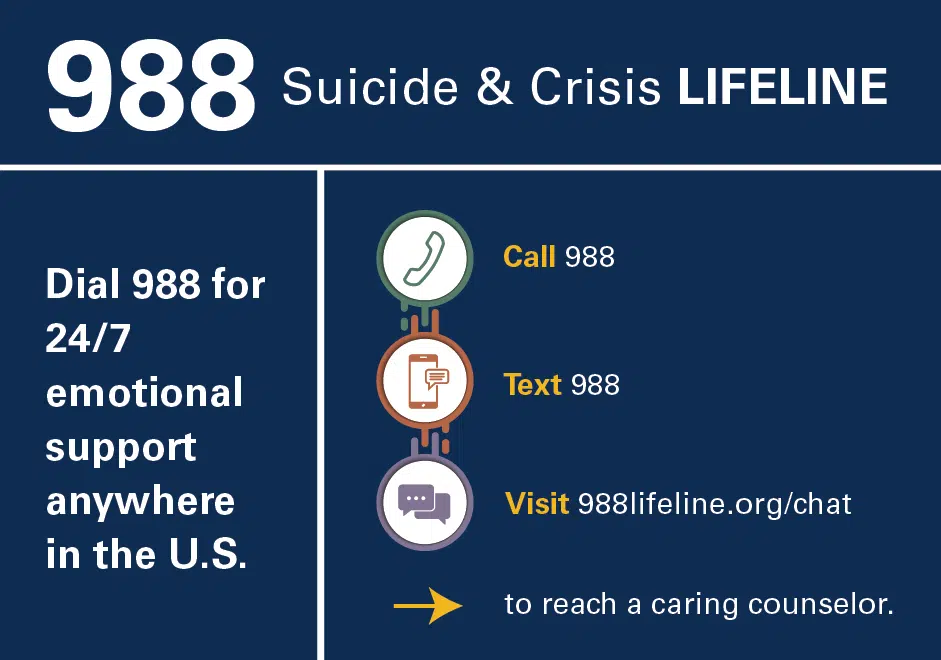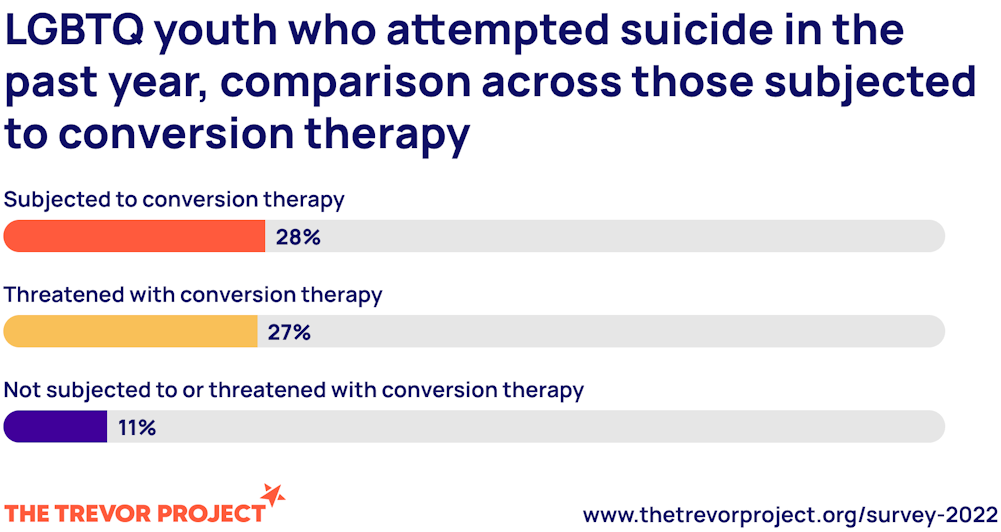Aaron Alon’s
The Chosen Ones
Heart-wrenching, hilarious, and ultimately unforgettable, The Chosen Ones tells the story of a group of LGBTQ+ teens in a conversion therapy summer camp, led by an “ex-gay” minister. It’s a timely story of living authentically and finding your chosen family, even when the world tells you not to.
Synopsis
The following synopsis contains spoilers. Song titles are indicated parenthetically.
Content Warnings: Conversion Therapy, Homophobia, Suicide, Transphobia
The show opens on Way in the Wilderness, a conversion therapy Christian summer camp for LGBTQ+ teens. Six campers arrive and nervously reflect on how they or their parents hope that somehow this place will miraculously make them straight and cisgender. (WAITING FOR A MIRACLE) These six campers were all picked to be part of the same small group, led by “ex-gay” Pastor Noah. In an early small group meeting, Iris, a 17-year-old femme lesbian shares her coming out story. (THIS IS ME) At the next small group meeting, they learn that unlike the rest of them, Caleb is there by his own choice; he feels broken and wants God to heal him. (SAVE ME) Noah is prayer partners this summer with Matt, a straight staffer who works on the grounds crew. Noah struggles with feeling attracted to Matt. At another small group, Daniel tells the story about how he tricked his parents into letting him go to gay clubs and hook up with his boyfriend by telling them he was going to church events instead. (I’M GOING TO CHURCH) In their next small group, a nonbinary, pansexual teen named Billie shares their story of growing up in a small town in the south, but learning that the world and its pleasures are far richer than anything they were taught growing up. (THIS WORLD) Back in his quarters, Noah is racked with self-loathing and guilt after he gave in to masturbating to gay porn. At another small group, Jo, a transgender teen, tells her story about being born “Joseph,” struggling with her gender identity and attempting suicide, as her family would prefer her dead than queer. (JOSEPH/JO) Meanwhile, tensions rise between Caleb and Daniel. Daniel leads the others in an anthem to assert the validity of their existences and to ignore those who would annihilate their truth and uniquenesses. (WE ARE THE MUSIC) Pastor Noah preaches to the full camp about the story of Job, suggesting that the youths’ queerness is a burden that God chose them for and that by overcoming it, they could become a greater part of His plan. In another small group, Alex, a butch lesbian, reflects on the disappearance of lesbian, and especially butch, culture, and how lonely the future seems as a result. (WHERE DID ALL THE BUTCHES GO?) Matt and Noah again meet in Noah’s quarters to talk and pray together, and Noah continues to struggle with his attraction to Matt. In the boys’ dorms, Iris has smuggled some makeup to Daniel, who surprises Jo by doing her makeup, saying that when done right, makeup reveals the hidden beauty within. (THE SECRET OF MAKEUP) Daniel and Jo sneak over to the small group room to share how incredible Jo looks. Caleb runs off and gets Pastor Noah before Jo can remove her makeup. Noah frog marches Jo back to the boys’ dorm and Daniel and Caleb have it out. When Daniel tells Caleb that he’s gay and nothing and no one can change that, Caleb lunges at Daniel, who drops Caleb with a single punch. Caleb runs off. Noah disciplines Daniel, who pleads to not be sent home, fearful that he’ll be thrown out on the streets. Noah receives a call and urgently sends Daniel back to small group. The small group discovers that Caleb attempted to hang himself; Jo found him and pocketed his suicide note, which they read together. (SAVE ME – REPRISE) The teens join Noah and the rest of the camp on the field, where they hold a vigil to pray for Caleb to come out of his coma. (WAITING FOR A MIRACLE – REPRISE) Feeling guilty for having his attention divided and missing the signs of Caleb’s suicidality, Noah separates himself from Matt, arranging for him to have a different prayer partner; Matt is hurt and confused by his sudden rejection. At their final small group, the teens try to cope with the news that Caleb’s parents are weighing taking him off life support and their fears of leaving each other to head home and back into the closet. Since they have to prepare their end-of-summer testimonials to give in front of the whole camp and their families, Alex suggests that give their testimonies together, sharing how they found hope and truth, something to believe in, and their place in the world. Their parents can think they found it in Christ, while they can secretly know that they found those things in the family of choice they’ve formed together. The show closes with them singing their group testimony. (THE ANSWER WAS YOU)
History
Musical Completed
Aaron Alon completed work on the first draft of the musical.
Casting for Recording
Casting was completed for the concept cast album.
Partial Reading
Thunderclap Productions mounted a semi-staged reading of the first seven songs as part of the MixMATCH festival in Houston, Texas.
Recording Released
The Concept Cast album of The Chosen Ones was released on all major digital music platforms.
Professional Premiere
Thunderclap Productions gives The Chosen Ones its professional premiere in Houston, Texas.


About Conversion Therapy
What is Conversion Therapy?
Conversion therapy refers to a broad set of practices that attempt to “cure” or “repair” a person’s sexual orientation, gender identity, or gender expression. Conversion therapy is legal in most countries and in most US states (see Statistics below).
What other names might it have?
Conversion therapy has numerous other names, sometimes in apparent attempts to circumvent bans or to distance themselves from negative associations. Reparative Therapy is one of the most common allied therapies. Its founder, Joseph Nicolosi, sought to distance himself from the term “conversion therapy” (Joseph Nicolosi Website) and claimed that “people were naturally heterosexual but that childhood trauma, possibly exacerbated by a domineering mother and a detached father, might lead to homosexuality.” (NY Times 2017 Obituary) Nicolosi’s son, Joseph Nicolosi, Jr., has attempted to further distance himself from conversion therapy, claiming that his practice of “Reintegrative Therapy” focuses not on changing a person’s sexual orientation or gender identity, but on “resolv[ing] trauma and addictions using evidence-based treatment approaches. Changes in sexuality are the byproduct.” (Reintegrative Therapy Website) Politicians often use these evolving therapeutic terms, likely to avoid the stigma of conversion therapy while still supporting it in spirit. For instance, the 2014 Texas Republican Party Platform referred to the “legitimacy and efficacy” of Reparative Therapy, while their 2022 Platform mentions “Reintegrative Therapy” instead. A number of other terms also exist, such as sexual reorientation therapy and ex-gay ministry. (See a partial list in this WebMD article.) Some medical organizations have renamed this broad set of practices Sexual Orientation Change Efforts (SOCE).
What might it include?
Conversion therapy and its allied practices may include:
- Talk therapy, often trying to root same-sex attraction in experiences of past trauma, parental abuse or neglect, or personal insecurities
- Behavioral therapies, often including the repetition of affirmations that reinforce heteronormative and gender normative beliefs
- Group therapy, which may include cataloguing past sexual impulses and experiences to a group of peers and practitioners
- Aversion therapy, where same-sex attraction in response to images, for instance, would be paired with negative stimuli, such as repulsive imagery, electrical shocks, or drugs causing nausea, vomiting, or paralysis
- Symbolic gestures to deal with suspected root trauma, such as having a boy beat an effigy of his mother
- Hypnotherapy
- Isolation, including isolating people from friends, family, the Internet, and their possessions, outside of dictated or pre-approved activities
- Teaching stereotypical gender-normative behaviors, such as having boys play football or having girls put on makeup
- Same-sex bonding experiences, such as holding or touch therapy, where a male counselor might tightly hold a male youth to feel another man’s strength in an allegedly platonic or paternal context
- Medical treatments, possibly including hormones, medications, steroids, or even electroconvulsive therapy or surgery
- Faith-based approaches emphasizing the evil and sin of LGBTQ thoughts, feelings, and/or behaviors, and possibly including the use of anti-LGBTQ slurs or prayers, beating, shackling, food deprivation, or exorcism
What is the scientific consensus?
The practice of conversion therapy and allied practices is soundly condemned by over a dozen major medical and psychological/psychiatric organizations, including the American Academy of Pediatrics, the American Medical Association, the American Psychiatric Association, and the American Psychological Association. Cornell University, in its review of extant studies, said, “after reviewing the research, we concluded that there is no credible evidence that sexual orientation can be changed through therapeutic intervention…There is also powerful evidence that trying to change a person’s sexual orientation can be extremely harmful. Taken together, the overwhelming consensus among psychologists and psychiatrists who have studied conversion therapy or treated patients who are struggling with their sexual orientation is that therapeutic intervention cannot change sexual orientation, a position echoed by all major professional organizations in the field.” (Cornell 2016)
Statistics
%
of US Adults
7.1% of US adults identify as LGBTQ.
(Gallup 2022)
LGBTQ US Adults
About 1 of every 34 (698,000) LGBTQ adults in the US have received conversion therapy, more than half during adolescence.
(UCLA 2019)
Times Likelier to Attempt Suicide
LGBTQ young people who are rejected by their families were 8 times likelier to have attempted suicide than those who were not rejected or were only a little rejected by their parents due to their LGBTQ identity.
(San Francisco State University 2009)
%
LGBTQ Youth
11% of LGBTQ youth surveyed by the Trevor Project in 2022 reported being threatened with conversion therapy; another 6% were subjected to it. Both groups had significantly higher suicidality. Transgender and nonbinary youth were particularly vulnerable populations.
(Trevor Project 2022 LGBTQ Youth Survey)
US States
22 US states and DC have statewide bans on conversion therapy for minors. These bans typically affect clinicians, but not members of the clergy.
(Movement Advancement Project 2023)
Current US Youth
It is estimated that 16,000 current US youth will receive conversion therapy before they reach age 18, while 10,000 who otherwise would have will not due to statewide bans.
(UCLA 2019)
Countries with Full Bans
Only 10 countries (Brazil, Canada, Cyprus, Ecuador, France, Germany, Greece, Malta, New Zealand, and Spain) have total bans on conversion therapy. Numerous others, including the US, have partial bans.
(Statistica 2023 | Equality Caucus 2023)
Further Reading
- Advocacy & Support Resources from the Filmmakers of “Pray Away”
- Beyond Ex-Gay
- The Case Against Conversion Therapy (2022 APA-Published Book)
- Houston Chronicle 2021 OpEd
- Human Right Campaign
- Minnesota Department of Public Health Review of Evidence (2022)
- Movement Advancement Project
- Netflix Documentary “Pray Away” – Film Website | Watch on Netflix
- Southern Poverty Law Center
- Trevor Project Guide to Conversion Therapy
- WebMD
- What We Know Project: Conversion Therapy (Cornell University)



